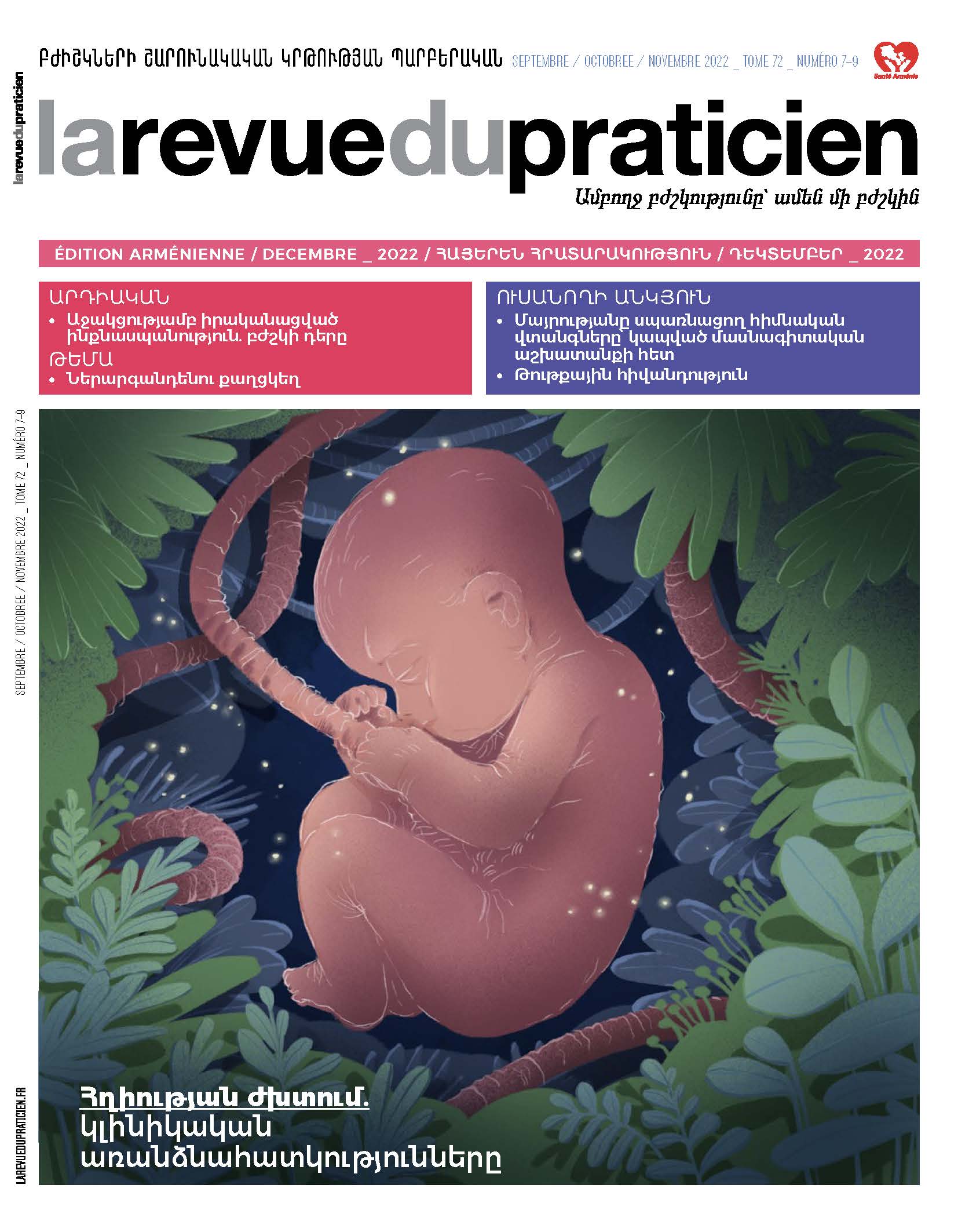Abstract
Denial of pregnancy corresponds to an evolving pregnancy without the woman being aware of being pregnant. It is generally associated with an absence of gravidic signs such as amenorrhea, abdominal swelling, breast tension, morning sickness, or maternal perception of fetal movements. Although this phenomenon is not well known and is sometimes considered a myth by the medical world, it represents a significant public health problem. Indeed, the lack of obstetric monitoring and preparation for parenthood are the cause of maternal, fetal and neonatal morbidity. The discovery of a denial of pregnancy should lead to the exploration of its clinical characteristics, its risk factors and the keys to its management. Although its causes are still unknown, recent discoveries in the neuroscience of maternal interoception could provide a better understanding of this phenomenon.
